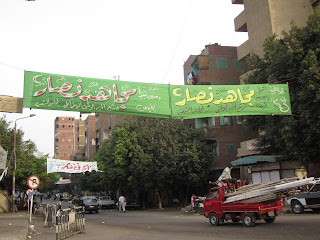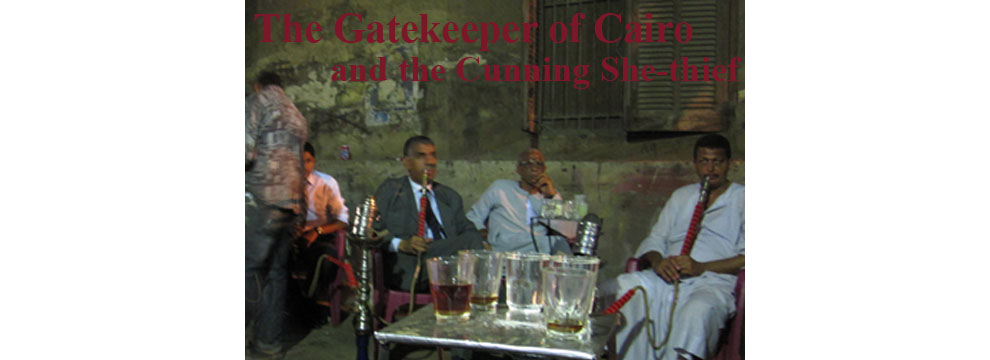Here is another interesting
article on the current political situation in Egypt. Walter Armbrust is right to point out that a Muslim Brotherhood boycott of the elections would be both a political earthquake - a
recent article states that there are members in the Muslim Brotherhood ranks who are calling for a boycott. However, it remains a very unlikely event given the fact that the Muslim Brotherhood likes its position as the primary opposition movement in Egypt. But if you are into revolutionary change, you can hope!
The article also does a good job of touching on the economic situation in Egypt. The country has certainly moved far from the socialist model put in place by Nasser. Whereas in Syria health services are still largely subsidized by the government, the prerogative of the Egyptian upper class to accumulate more wealth triumphed over the right of Egypt's poor to affordable health care. The rich continue to get rich and the poor continue to hassle American students for tips since that is, for them, the easiest way to make ends meet (so much easier than demanding a fair wage). Sometimes I hope that I am doing my part to support the reform of this political system when I do not give baksheesh (tips) EVERY time it is demanded by a police officer for helping me use a broken ATM. My hope is that he will instead turn to the government and demand a living wage. In some ways it would even make economic sense for the government to pursue such a policy because: 1) If it had some idea of what people were actually earning, it might actually be able to tax income; 2) If tourists did not feel so harassed in Egypt, tourism to Egypt might actually increase. This is greatly needed since the Egyptian economy is almost solely dependent on remittances from the Gulf, US aid, Suez Canal $ and tourism.
This article also got me thinking about authoritarian economics. What is the best economic policy for an authoritarian regime to pursue? If everyone is getting free health care and a free education, will they start to demand more? If the economic disparity becomes more obvious, will people start to demand more? Is the neoliberal business agenda of the NDP one tatic for the perpetuation of the NDP's power or is it simply a "get rich fast" scheme?
 sign supporting Mohammed Beltagy (MB candidate) in Shubra
sign supporting Mohammed Beltagy (MB candidate) in Shubra sign supporting Megahed Nasar (NDP candidate) in Shubra
sign supporting Megahed Nasar (NDP candidate) in Shubra car with posters supporting Hisham Mustafa Khalil (NDP candidate) outside of a polling station in Zamalek
car with posters supporting Hisham Mustafa Khalil (NDP candidate) outside of a polling station in Zamalek










